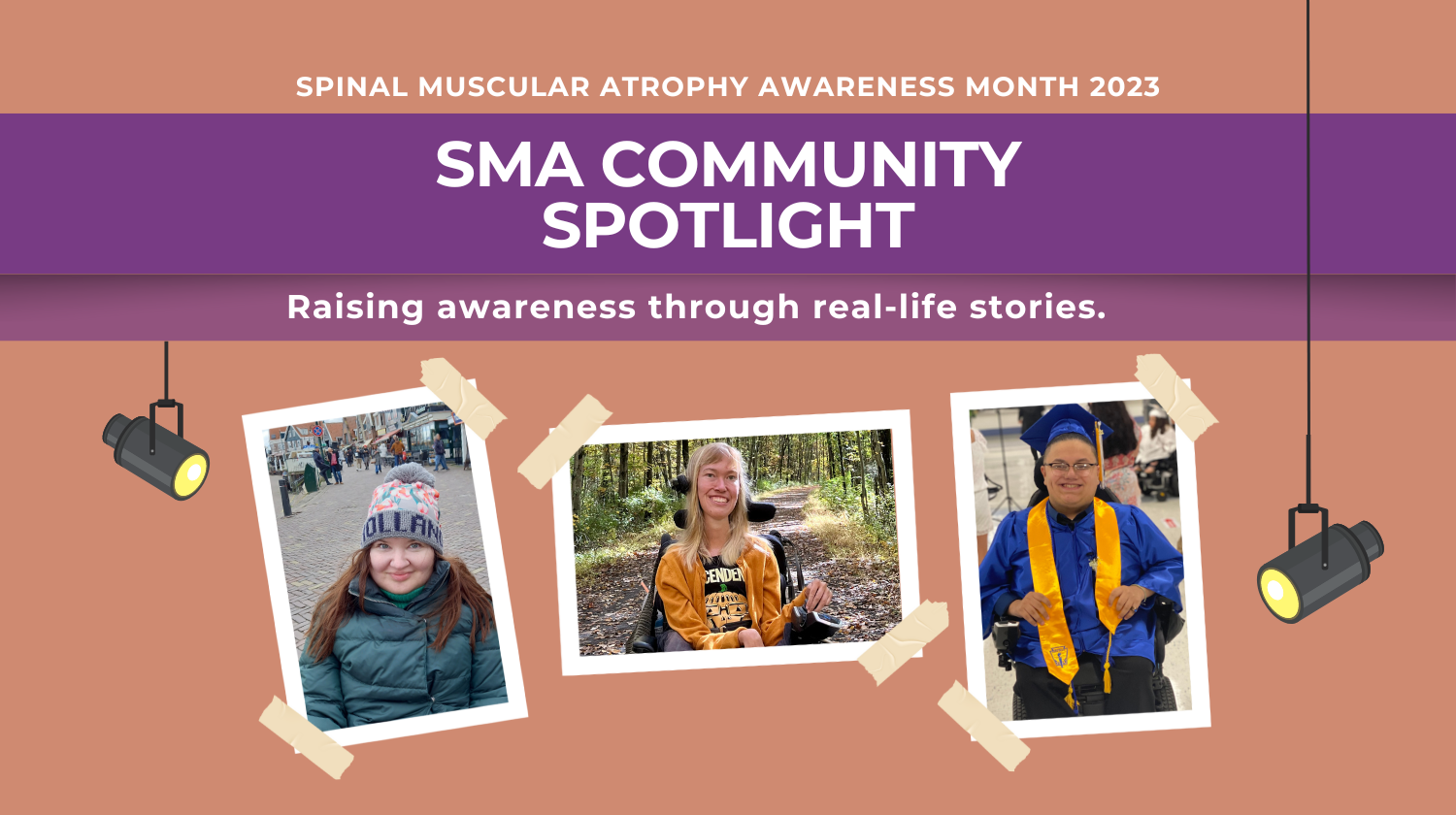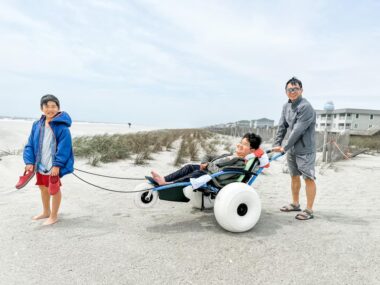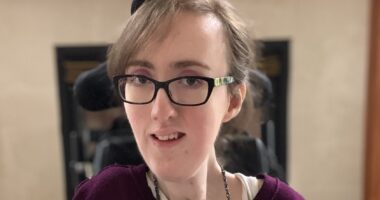What does ‘fair’ look like for siblings of children with disabilities?


Beach time is fun time. For Brady, center, to partake in the fun, both his brother, Lucas, left, and father, Kevin, help push and pull his customized beach chair. (Photos courtesy of Kevin Chan)
This is Kevin Chan’s story:
“It is not fair!” These words are hard to hear from my sons during their frequent brotherly bickering.
My first son, Brady, was born with SMA type 2. He has limited physical capabilities and has been in a motorized wheelchair since he was 2 years old. Brady requires a fair amount of physical assistance in his daily life, which my wife and I have adapted to. We must transfer him, brush his teeth, and scratch his itches — tiny actions that most able-bodied people take for granted.

Brady, left, and Lucas discuss top secret plans, out of earshot of their parents.
For Brady, “fair” means living with the same level of independence and access as his peers. As we navigate the teen years and growth spurts that lead to less mobility, the unfairness sometimes overshadows the things we’re grateful for: an approved treatment, access to therapies, and supportive family and friends.
My younger son, Lucas, views “fair” from a different perspective. Born able-bodied, Lucas is often responsible for more chores than Brady. While a loving and helpful brother, he’s also a typical 9-year-old who views the division of responsibilities as anything but fair. In some ways, both are asked to grow up too fast.

Brady is geared up by volunteers at a local camp, ready for his first “big swing” experience.
Even through the brotherly bickering and perceived unfairness, there is nothing but love between Brady and Lucas — an unspoken bond that goes beyond a typical sibling relationship. When one brother drops something, the other picks it up as second nature. Lucas knows how to give hugs without brushing Brady’s joystick, and instinctually looks for terrain challenges anytime we explore new places. They bond over video games, music, and their love of anime.
I sometimes ask myself what is fair, but quickly dismiss it. When it comes to Brady and Lucas, my priority is to first love them for who they are, and then to focus on what I can do to make them stronger, more resilient, empathetic, and adaptable individuals.
In recognition of Spinal Muscular Atrophy Awareness Month in August, the SMA Community Spotlight campaign features a series of stories highlighting the real-life experiences of people affected by SMA, written in their own words. Follow us on Facebook and Instagram for more stories like this, using the hashtag #SMASpotlight, or read the full series.







